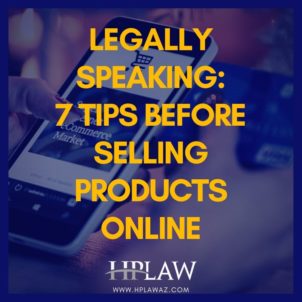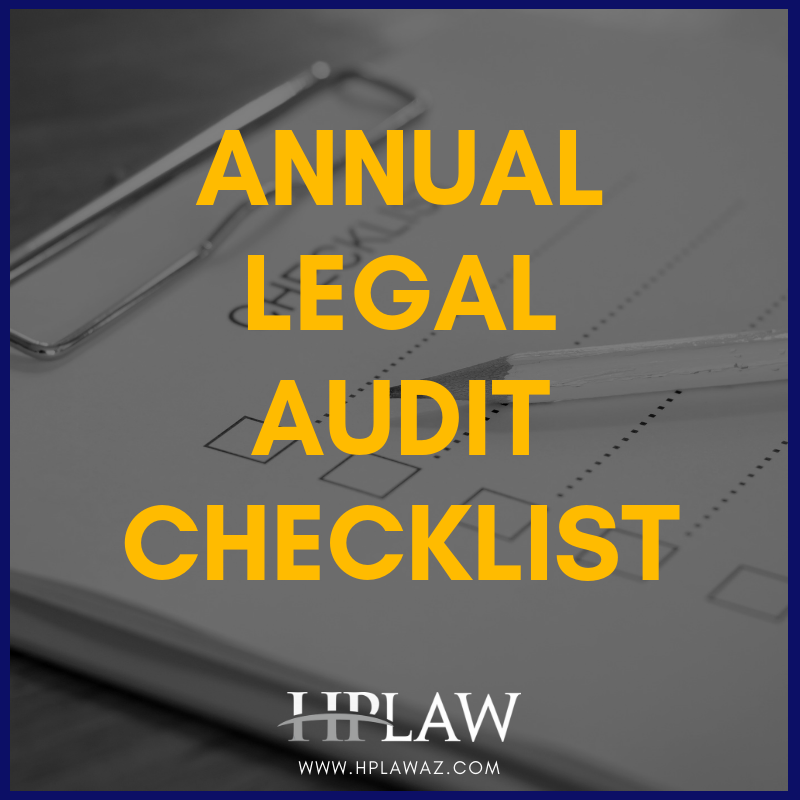Legally Speaking: 7 Tips Before Selling Products Online

If you want to start a home-based business or expand your “brick and mortar” operation, selling online is a great way to increase sales. Before you begin, however, there are several legal issues you should be aware of.
Properly Form & Use a Business Entity: Whether you’re a Start-Up or expanding to online sales, use the correct business entity. They are all different and you should seek legal advice before choosing one over the other.
- Sole proprietorship: It’s easy and cheap (initially) because no business is legally formed. There’s no distinction between your business and your personal assets. This makes you personally responsible for all the business debts and risks, while the business can be liable for your personal debts.
- Limited Partnership (LP): Two or more owners use LPs by establishing General Partners and Limited Partners. General Partners call the shots with CEO-like authority but are liable for all business liabilities. Limited Partners only risk what they invest, are not liable for business debts, but have very little input on how business is done (think “silent investor”).
- Limited Liability Company (LLC): One or more owners use a LLC to limit personal liability. Company debts are only payable by the company, not individual owners, while personal debts are not payable with company funds. These are popular because they are inexpensive to form and maintain while offering significant risk protection.
- Corporation: These business entities require more formalities when created and to maintain on an annual basis but better accommodate many owners (shareholders). Shareholders are personally protected from business debts. Taxation is more complex; there are C-Corps and S-Corps, each of which have their own special tax and ownership rules.
Trademarks: A trademark is words, names, symbols, or a combination of them that distinguishes your products and business. It is one of your most valuable assets and should be registered with your State. If you sell beyond your state’s borders, register it with the United States Patent and Trademark Office.
Sales Tax: Most states have sales tax, and if you sell in other states, you must collect and pay this tax to each State where you sell. There are some exemptions for smaller businesses that have, for example, less than $100K in sales or under 200 annual transactions.
Restrictions on Home Business: Home-based businesses are popular. If you plan to store a large inventory, it is important to ensure you comply with your lease, deed, HOA, or zoning ordinances.
Licenses and Permits: Many businesses do not require special licenses. However, medical devices, food, and animal products will typically require special local, state, and/or federal business licensing before you can ship product.
Data Protection and Privacy. For online businesses, data security and strong privacy policies are essential because purchases transmit personal customer information. Customers will expect to see protections are in place. You can be civilly liable if third parties obtain customer information because you failed to protect personal information.
Business insurance: General liability, product liability, commercial liability, data protection, employee activity insurance can protect you in the event of lawsuits or accidents. Have as much insurance as you can reasonably afford.
By getting legal advice on these and other items affecting your online business, you can better…
Leave a Legacy, Not a Burden!

We are a local Glendale AZ firm dedicated to personalized legal services at a reasonable cost with a focus on Estate Planning, Probate, Asset Protection & Small Business Planning. We are committed to high-quality personalized service and look forward to talking with you.
You may also call us directly at 623-299-2722.




Sorry, comments are closed for this post.